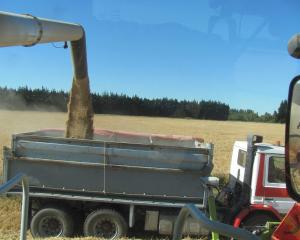
Agribusiness in Schools adviser Melanie Simmons, of Hamilton, said 33 secondary school teachers, from schools between Auckland and Winton, attended the conference.
The two-day conference is held every two years.

Of those schools, 65% were urban and 35% were rural.
She praised John McGlashan College for hosting the conference and thanked University of Otago staff for their support.

Conference highlights included the keynote address "The Future of Food — Challenges and Opportunities", by University of Otago food science department head Miranda Mirosa, a workshop on "Carbon and the Red Meat Industry", by Dunedin chef Greg Piner and a field trip to the University of Otago campus for delegates to make hemp milk and using the leftover product to make a hemp-based nut bar.
University of Otago agricultural innovation programme director Craig Bunt, of Dunedin, lead the workshop to make the hemp products.

The regulations include the need for a licence to grow hemp and a limit on the varieties allowed to be grown.
Challenges for developing the hemp industry in New Zealand include access to seed.
Hemp could be consumed by humans, but not livestock in New Zealand due to some export markets refusing agricultural products fed hemp, such as the United States.

Consequently, after a hemp crop was harvested in New Zealand, livestock could not be put on paddocks to graze the stubble.
Farmers would need to plough the stubble in and plant another crop, he said.
When compared to other crops, hemp had a greater drought tolerance and required fewer inputs, such as fertiliser.

Hemp was a rich source of protein and was low in fat, he said.
"They are a good, all-round food and a lot of fun."















